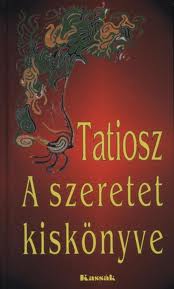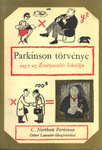 The other day “en jetant un coup d”oeil” into one of my favorite forum-generating LinkedIn group, I’ve found a forum topic (started by Marianna Lead, MCC (Master Certified Coach), PhD, Provider of ICF-Approved Coach Training & Mentoring @ Goal Imagery Institute, ICF Credentialing Examination Assessor, Top Contributor (to the LinkedIn group’s work and who BTW (very) often start a brand new topic…). Voilà, the topic:
The other day “en jetant un coup d”oeil” into one of my favorite forum-generating LinkedIn group, I’ve found a forum topic (started by Marianna Lead, MCC (Master Certified Coach), PhD, Provider of ICF-Approved Coach Training & Mentoring @ Goal Imagery Institute, ICF Credentialing Examination Assessor, Top Contributor (to the LinkedIn group’s work and who BTW (very) often start a brand new topic…). Voilà, the topic:

“For me, it was "direct communication". It's ironic because I'm a pretty direct person. However, it was tricky to learn how to say everything I wanted to say in a "coaching way". What about you? What do you think of direct communication in coaching? Any examples?”
I have found this brilliant (very rarely spoken about...) and my first contribution to it was as follows:
“That one is really excellent...:-))) Interesting, I have lot of times the same feeling... in a way, coaching is a special conversation... thinking... perhaps direct communication is rather relatively rich in I-message context while in coaching I-messages are rare (though not inexistants...)...”
To which Marianna answered:
“Yes, totally, it's about retraining yourself to say "It sounds as though...", etc. And getting used to it! Or, for instance, when you really want to ask, "So, if this and that is not working, why do you bother?", to ask instead in a "coaching" way, "So, in hearing what you just shared, what is your commitment to X?" And so on... In other words, to keep "translating" into coaching language what you are thinking, and eventually it becomes a habit and you don't have to think about it so much. Literally, just like learning to speak a new language. LOL”
Then “came” to the topic Marion (Anschel) Franklin MS, MCC, BCC, Professional Coach Training, Mentor, Life Coach http://www.lifecoachinggroup.com and wrote this (and that’s why I have written this blogpost because it’s a very instructive summarized format about the main obstacle in front of the beginner – and not only the brand new beginner – coach)… and all these in the context of the ICF competencies:
%20Franklin.jpg)
“In my experience, coaches have a hard time with so many of the competencies - each for different reasons.
Establishing the agreement - it often sounds too contrived and forced and part of a formula. It often has such emphasis too early in the conversation before any exploration.
Coaching Presence - literally missing important clues and most importantly getting sucked into the story. Or following the client but getting trapped/seduced by the story or the other person in the story.
Active Listening - Often not reflecting or providing context for questions based on what's been said. Often wanting irrelevant details vs. understanding who the client is.
Powerful Questioning - Again, no context for questions and often closed questions or informational questions that don't force the client to think.
Direct Communication - not knowing HOW to deliver the message without diluting it. (The secret is in softening the delivery but not changing the literal message.)
Creating awareness – is not just about having the client realize something or gain a new perspecive. Coaches believe that by the client getting what they initially asked for that awareness has been created to the fullest extent. Creating awareness, if done masterfully, happens throughout the conversation and teh wawareness is related to their whole life – not to be specific situation. The awareness is about who they are as a person
Designing Actions - Usually part of the coach's formula vs. getting deeper into the conversation and the actions showing up automatically from the client.
Managing Progress and Accountability - totally bastardized with a need to be the point person or to keep tabs on the client's progress vs. helping to create a supportive environment.”
What I added as a comment is (1) the admiration, (2) one more turn…:-)))
“I agree with Marion and admire her summary... for a certain time I thought that I can "switch" between the "states" (I actually used to say: "I can switch off my ego-state button..."...:-)))... well, it seemed to be a good idea for a certain time but then I realized that I should also live it... that's it... it is more than "...to sound natural", it is to be natural... (like Rogers said in the On becoming a person...)”
teveatufokan@gmail.com
 Platón megkérdezte tanítványaoitól, mi a három legfőbb dolog, amire az életben szükségünk van. Lalimonasz ezt válaszolta :
Platón megkérdezte tanítványaoitól, mi a három legfőbb dolog, amire az életben szükségünk van. Lalimonasz ezt válaszolta :

 The other day “en jetant un coup d”oeil” into one of my favorite forum-generating LinkedIn group, I’ve found a forum topic (started by
The other day “en jetant un coup d”oeil” into one of my favorite forum-generating LinkedIn group, I’ve found a forum topic (started by 
%20Franklin.jpg)